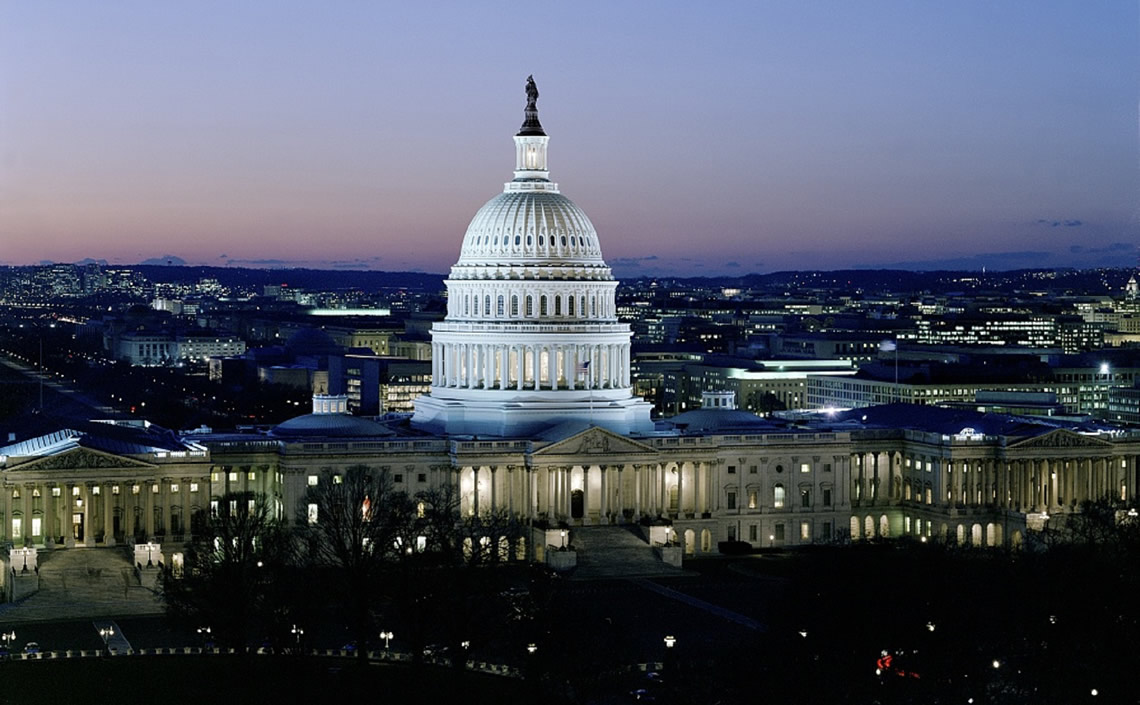AEA opposes H.R. 2997 and ATC privatization in the U.S.
SUMMARY:
Last week, U.S. congressional leaders in both the House and Senate proposed and debated several items as part of the discussions on future funding of the Federal Aviation Administration. The current funding expires in September of this year. Both the House Transportation and Infrastructure Committee and the Senate Commerce, Science and Transportation Committee passed different versions of FAA reauthorization.
The House bill, H.R. 2997, the 21st Century AIRR Act, was passed by the committee on June 27, and it includes a proposal to privatize air traffic control in the U.S. The Senate version of the bill, S. 1405, the FAA Act of 2017, made its way through the committee two days later on June 29, but it does not include ATC privatization language.
Just as the one-size-fits-all approach to regulations doesn't work for you or your business, both the House and Senate bills contain promising proposals that will benefit the general aviation industry and aviation as a whole. However, the House bill contains a provision that the AEA and the entire general aviation community are united against: proposed transfer of the air traffic services currently provided by the FAA to a separate not-for-profit corporate entity.
On Friday, June 30, the Aircraft Electronics Association, along with more than 30 general aviation groups, issued a joint statement opposing H.R. 2997. After a thorough and detailed review of the proposal, the GA coalition concluded that these reforms will produce uncertainty and unintended consequences without achieving the desired outcomes.
According to the joint statement, "While we enjoy the safest, most-efficient air traffic control system in the world, we also believe that reforms, short of privatization, can better address the FAA's need to improve its ability to modernize our system." Click here to view the statement from the GA groups in its entirety.
POINTS TO MAKE:
H.R. 2997 is wrought with incorrect assumptions.
The House Transportation and Infrastructure Committee reported that it has researched similar global air traffic organizations and reported their successes as justification to transition the U.S. ATC to a corporate entity. However, there are no other countries with the scope of domestic flight operations in the U.S. and the scope of general aviation operations in the U.S. Additionally, the FAA is the model that all other countries measure themselves against. In essence, the House committee's logic is flawed.
The House Committee failed to address the fees and charges that general aviation currently pays for flight operations, which have been incorporated into the fuel usage as a federal tax on aviation fuel. This has long been viewed as the most advantageous and cost-effective means of collecting general aviation fees and charges. The proposed corporate entity would not have access to these collection tools and would not only collect these equivalent fees but also add administrative fees on top, thereby increasing the cost of operations to every general aviation pilot.
The proposed privatization of ATC and the transition to a fee-based corporate entity would have a detrimental effect on safety. In essence, the proposal would discourage general aviation pilots from using the services that, after 100 years of flight operations, has created one of the safest modes of transportation and the safest aviation system in the world. The benefits of the Flight Services, Flight Following, filing Flight Plans, and, where appropriate, filing for IFR flight operations are well documented. Under the House proposal, all of these current tax-paid safety services would become "toll-based" services, which would discourage rather than encourage their use. This proposal runs contrary to every safety-enhancing activity the AEA has supported in the past two decades.
WHY GA OPPOSES ATC PRIVATIZATION:
The House bill (H.R. 2997) that includes ATC privatization is being pushed by many of the commercial airline companies. The National Air Transportation Association recently published a brief titled "Myths and Facts Surrounding Air Traffic Control Corporatization" that provides an overview as to why the general aviation industry resoundingly opposes the airline's ATC privatization power grab that would remove congressional oversight for aviation policymaking and place it in the hands of a private entity that would effectively be controlled by the airlines themselves. This document is worth taking the time to review.
AEA COMMENTARY:
The AEA supports efforts to develop a long-term FAA reauthorization that creates predictable and stable funding for the FAA, including biennial budgeting, consolidating unneeded and outdated facilities, procurement, and certification reforms, and putting to use some of the balance from the Airways and Airport Trust Fund to expedite technology deployment.
It is imperative that congressional leaders recognize the difference between modernization and privatization. The proposed plan to privatize ATC could delay progress to update and modernize the nation's air traffic control system -- including meeting the FAA's mandate to equip the general aviation fleet with see-and-avoid (ADS-B) technology by Jan. 1, 2020.
One additional item of interest to AEA member companies is the Senate Commerce Committee's approved amendment offered by Sen. James Inhofe (R-OK) that would restore the right of repair stations to voluntarily surrender their certificates and explore making repairman certificates issued to mechanics portable from one employer to another.
CALL TO ACTION:
Congress will be returning to Washington, D.C., next week following the Independence Day recess. The AEA encourages its members to share views and comments with elected officials this week, particularly if a local opportunity exists, such as a town hall meeting, or by email.
You can find contact information for your member of the House of Representatives here.
You can find your Senator's contact information here.
FOR MORE INFORMATION:
Contact Ric Peri, AEA vice president of government and industry affairs, by email at ricp@aea.net or by phone at 202-589-1144.

